Written by Martha Denton, (University of Minnesota), Student Correspondent for CET Brazil, (USP track), Fall 2024
As my time in Brazil comes to a close, I’ve been reflecting on everything I’ve learned since arriving in July. When I touched down in São Paulo, I started a simple practice: writing down new words that I encounter in a notes file on my phone called “Novas Palavras” (new words). Learning a language through immersion can be a bit like drinking from a fire hose. Taking a moment to write down a new word has been a way to cement vocab in my memory, so I can recall it more quickly in the future or reference it when needed. Looking back, it’s more than just a vocab list. It’s a chronology of my time in Brazil. Scrolling through it is a bit like reading a record of my discoveries and misunderstandings, of challenges and connections.
So here are 10 words and expressions from my list of several hundred, in mostly chronological order. If you’re a Portuguese learner, maybe these could come in handy. Or if not, maybe it will inspire you to keep a similar list.
Coleta de bagagem – Baggage claim
This word is one of the first, it was added the day the list was created. CET Brazil’s resident coordinator, Leandro, kindly came to pick me up from the airport, and I was trying to communicate where I was. It’s a reminder that many of my most useful vocabulary has been learned while frantically searching the WordReference app as I compose a WhatsApp message. This entry reminds me of the feeling of anticipation and overstimulation as I arrived, not knowing what the next five months would bring.
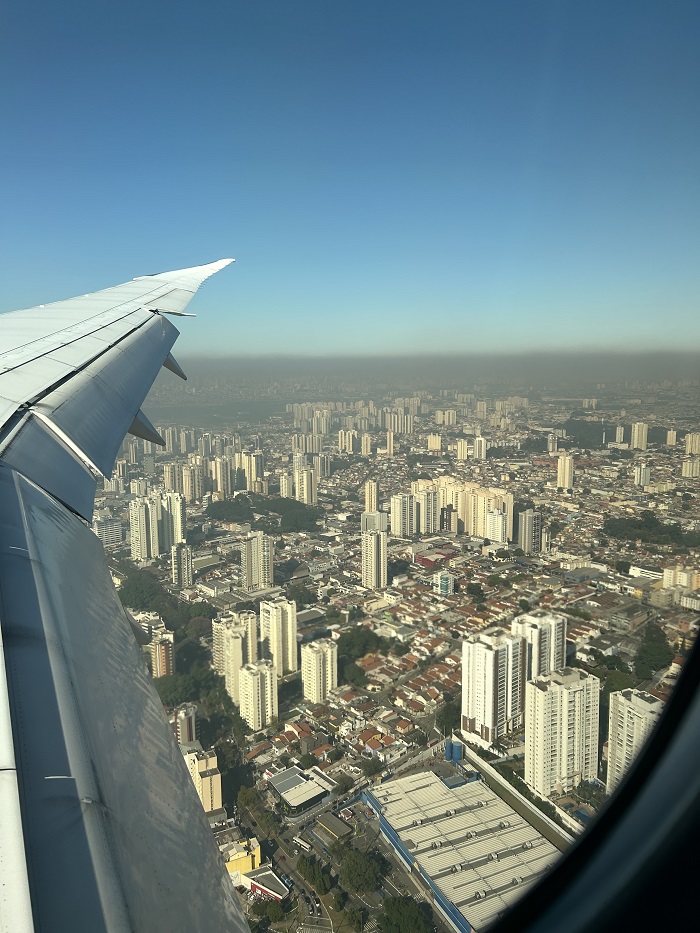
Almoçar – To eat lunch
Almoçar is a basic word that I now use daily. I arrived in Brazil with only two semesters of Portuguese, and while I’m certain I learned this word in my first Portuguese class, I had forgotten it when I arrived. So when my roommate, Micaela, asked me if I would like to get lunch, I said yes. Then discretely, I looked up what I was agreeing to. It’s a reminder to myself that only four short months ago, I didn’t have the linguistic tools to get lunch.
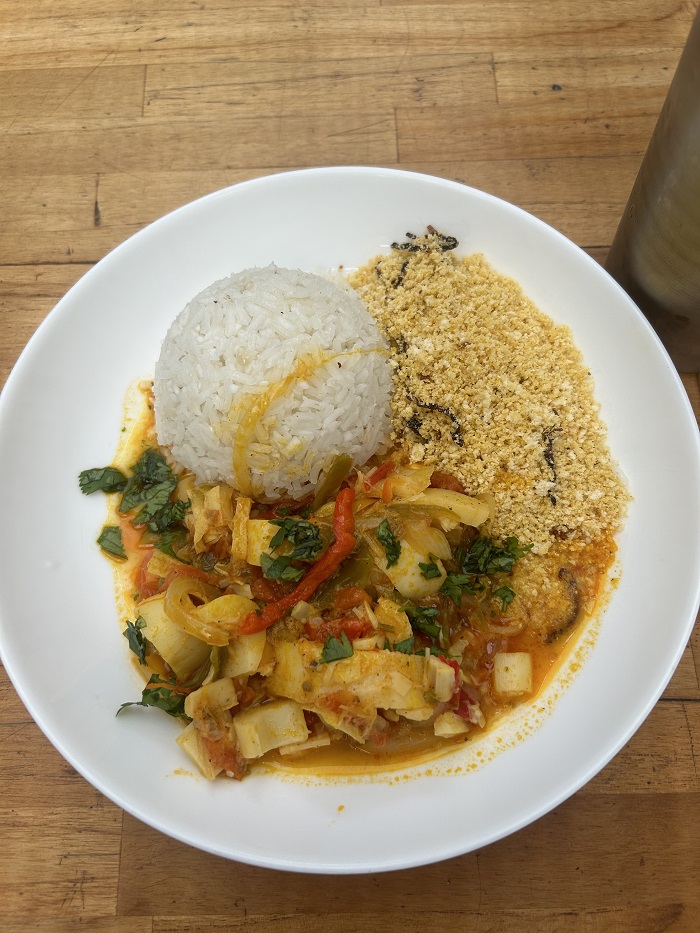
Pasta – Folder
On my first day of my sociolinguistics class at USP, the instructor went over the syllabus and explained that all the course materials would be in the “pasta.” I spent a minute trying to figure out what linguistic variation had to do with noodles before registering that he was referring to a folder. Portuguese is full of delightfully strange words if you look at them from an English-speaking perspective: “salsa” means parsley, “o shopping” means the mall, and “notebook” means laptop, to name a few.
Pichação – Graffiti/tagging
I learned this word on a tour of the São Paulo city center when I made the mistake of referring to some spray-painted words on a wall as “grafite”, which, despite sounding very similar to graffiti, is a word that refers to murals or urban street art, while the word “pichação” refers to tagging. Cognates are a lifeline when learning an Indo-European language, but it also serves as a reminder of the many “false friends” that can get in your way.
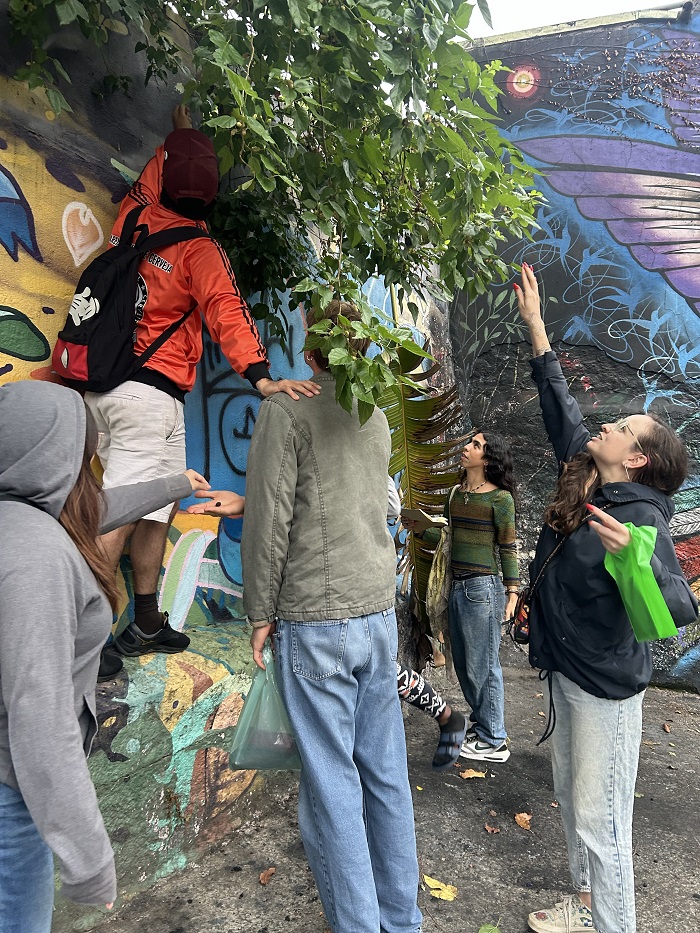
Pois é – I agree (with indignation/rebellion)
I learned this expression while talking with my friend, Beatriz, about how the plan to build a metro station on the USP campus got shut down because of resistance to easily allowing outsiders into campus, despite it being a public university. She used this expression, which doesn’t have a direct equivalent in English. One of my favorite aspects of learning a new language is learning new expressions to express your feelings that don’t exist in your native language.
Que delícia! – What a delight
On the traveling seminar to Salvador da Bahia, I went for a refreshing swim in the ocean on a hot day and a woman get into the water near me and exclaimed “que delícia!” I’m reminded of that day whenever an experience merits an exclamation of “que delícia!”
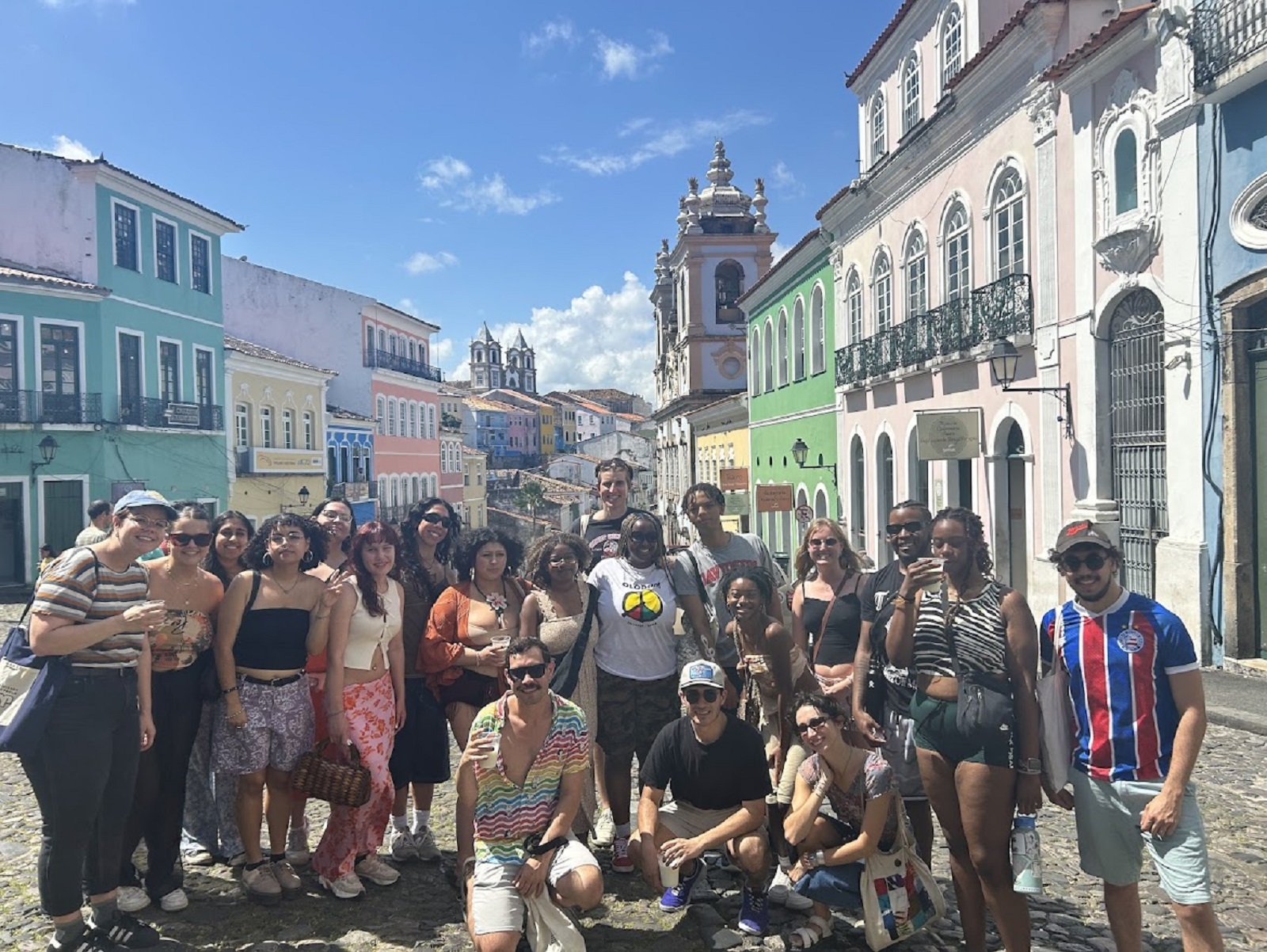
Dar uma olhada – To take a look
Maybe it’s from being raised by a German mother, but I generally say no pretty directly, which I learned is not very Brazilian. Americans sometimes come off as cold or rude when saying no, (which relates to another word on the list, “tato” meaning tact). Now when a storekeeper asks me if I need any help I don’t say “não, obrigada”, I say that I’m just going to “dar uma olhada.”
Aguentar – To endure/to stand
I learned this word the day Donald Trump was re-elected President. I was upset, trying to process the news far from home, and anxiously thinking about what life would look like upon returning to the United States. My friend, Patrícia, from my urban geography class sent me a really thoughtful message. She talked about her own experience living under the previous Bolsonaro administration. In her message she wrote: “espero que vocês, como nação, consigam aguentar os próximos anos com esperança e luta” which mean, more or less: “I hope that you, as a nation, are able to endure the coming years with hope and resistance.”
Picolé – Popsicle
This one was added on a visit to Sesc Pinheiros, one of the almost utopian community centers that are my favorite places to study, enjoy local art, and eat cheap and delicious food. I stopped by the café to get some breakfast before heading up to the library to study. On the little screen by the entrance, I ordered a coffee and a “picolé de limão” which I thought was a lemony pastry or fruit dish. I ended up eating a popsicle at 10am, but honestly it was kind of refreshing and I learned a new word.
Agradecer – To thank/to appreciate
As I write my final papers and prepare to return to the U.S., there is a lot to be grateful for: the CET staff including Ariane, Felipe, Leandro, Maria, and Súlia, my roommates Andrei and Micaela, my CET instructors Giselda and Luiz, and my USP professors and classmates to name a few. Saying “obrigada por” meaning “thank you for” gets repetitive, and learning a new language requires a consistent and intentional effort to move words from your passive to active vocabulary. While I’ve learned more Portuguese than I thought was possible in four months, I’m constantly running into gaps in my vocabulary and unfamiliar conjugations. But for now I’ll add “agradeço” (thank you) to the mix instead of just obrigada.
Reflecting on this list, I’m reminded about how humbling it is to learn a new language. Even though my confidence in Portuguese has grown a lot, I still sometimes feel like a little kid. I recently learned that in terms of dictionary entries, the Portuguese language has over 818,000 words. It would be impossible to learn every one and apply them all seamlessly in every context. But every word I add to my living dictionary is another tool to connect with new people and unlock a little piece of the world around me.
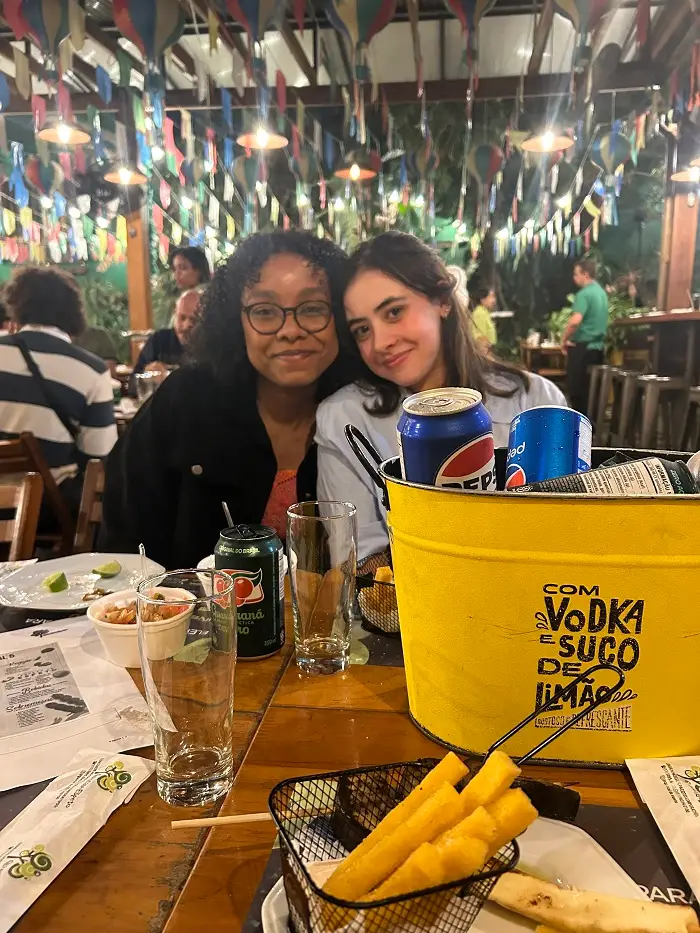
Interested in learning about studying abroad in Brazil? Click here to learn more about CET Brazil.